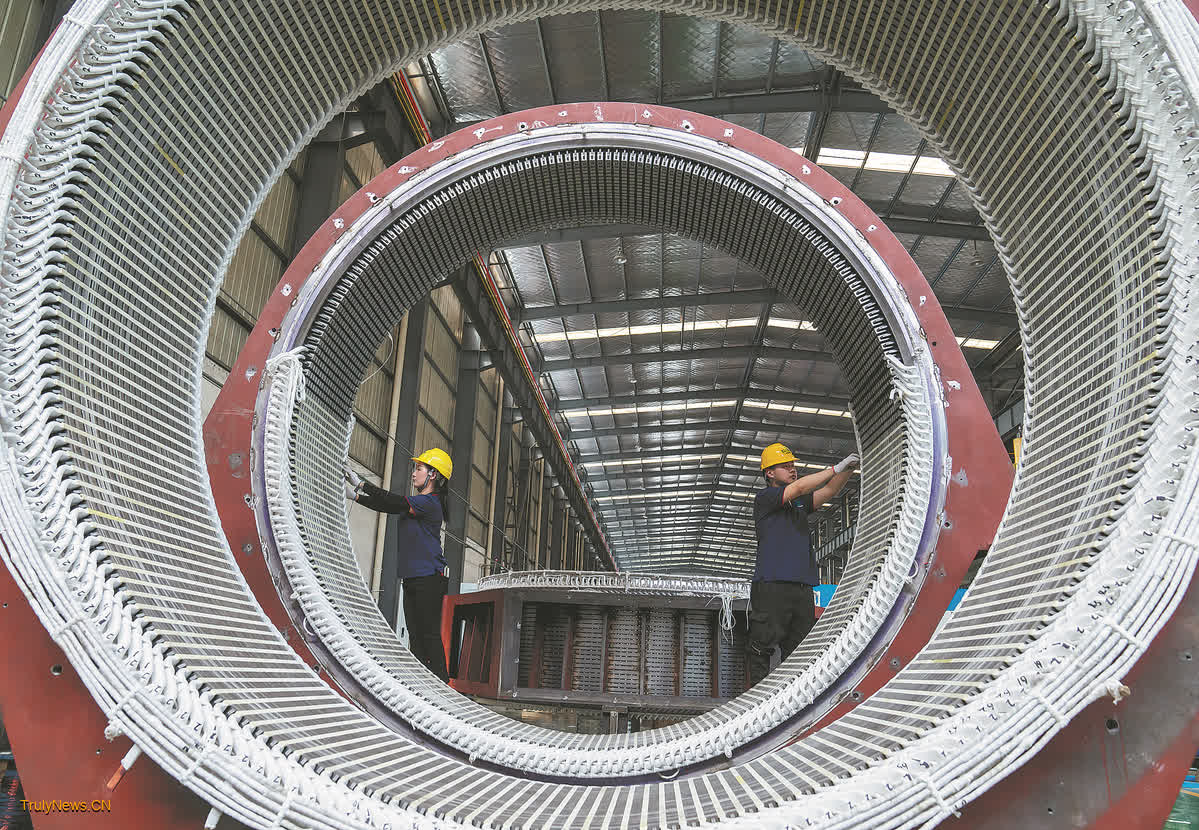
China’s gross domestic product grew 5.0 percent year-on-year in the first half of this year, National Bureau of Statistics data show, while GDP grew 5.3 percent in the first quarter and 4.7 percent in the second quarter, showing signs of decelerating growth.
The momentum of global economic growth has remained weak since the beginning of this year, which, along with geopolitical conflicts, international trade frictions and other issues, has contributed to insufficient effective domestic demand in China. In this context, it is not easy for China, with its huge economic size, to achieve a growth rate of around 5 percent, faster than that of the United States, the eurozone, Japan and other major economies, although it still remains an important engine and stabilizing force of world economic growth.
The country should attach greater importance to the lower-than-expected 4.7 percent GDP growth in the second quarter and the reason for it. The extreme weather events such as drought and flooding in some places have affected household consumption and fixed asset investment, resulting in a slowing economy, but the fundamental factor is still the lack of effective demand and market confidence. Therefore, the country needs to increase policy intensity in the second half of the year to avoid further economic slowdown from affecting market expectations.
Among exports, investment and consumption, the traditional “troika” of China’s economy, only exports exceeded expectations in the first half of the year. In terms of investment, manufacturing investment and infrastructure investment have seen stable growth, but weak real estate investment has weighed on economic growth. In terms of consumption, the total retail sales of consumer goods increased by 3.7 percent in the first half of the year, but this was weaker than market expectations.
The utilization rate of China’s industrial capacity above designated size in the second quarter was 74.9 percent, which is relatively low, indicating that some low-quality capacity needs to be phased out. The country should strengthen market enforcement and supervision to ensure the survival of the fittest, while taking measures to promote the recovery of prices and confidence.
In the second half of the year, the country should focus on expanding consumption and enhancing confidence. With the real estate market showing signs of improvement, positive monetary policy signals should be transmitted to further stabilize market expectations and enhance market confidence. The gradual implementation of special government bonds and ultralong special government bonds should be promoted, efforts to cultivate and expand new quality productive forces be stepped up, and effective quality improvement and reasonable quantitative growth of the economy fostered to ensure the economy is on a stable and sound footing in the long run.